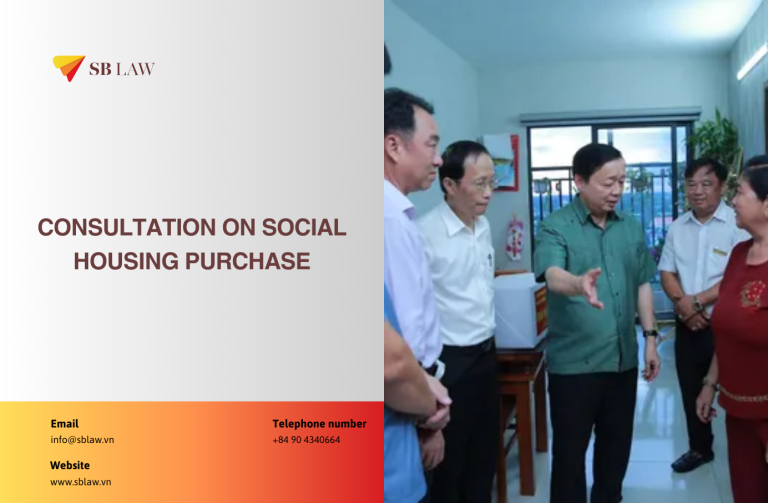
1. Credit institution is only allowed to purchase corporate bond when their non-performing loan ratio is less than 3%
This is the content of Circular 16/2021/TT-NHNN on credit institutions, foreign bank branches buying and selling corporate bonds.
Specifically, credit institution is only allowed to purchase corporate bonds when (clauses 5 and 6, Article 4 of Circular 16/2021/TT-NHNN):
That credit institution has non-performing loan ratio of less than 3% according to the latest classification period according to the regulations of The State Bank of Vietnam on classification of assets, deduction level, method of making provision for risks and the use of use provisions to handle risks in operations for credit institutions before the time of purchasing corporate bonds.
In addition, credit institution is only allowed to purchase corporate bond when:
- Corporate bond satisfies Article 5 hereof;
- Use purpose of revenues generated from corporate bond issue is legitimate and compliant with bond issuance plans and/or plans for utilizing capital, revenues generated from bond offering and issuance approved as per the law;
- Issuer guarantees to redeem bond before maturity when: The issuer repurposes revenues generated from bond issuance during the period in which credit institutions hold the bond; the issuer violates regulations and law on issuance of corporate bond; the issuer violates the plans;
- The plans are feasible and the issuer is financially capable in order to settle both principal and interest of the bond adequately;
- The issuer has no non-performing loan in credit institutions in the last 12 months prior to the date on which credit institutions purchase corporate bond.
In addition, credit institution is not allowed to purchase corporate bond in the following cases: (Clause 8, Article 4 of Circular 16/2021/TT-NHNN):
- Corporate bonds issued with the purpose to restructure the debts of the issuing enterprise
- Corporate bonds issued for the purpose of contributing capital or buying shares in other enterprises
- Corporate bonds issued with the purpose to increase the size of working capital
Circular 16/2021/TT-NHNN will take effect from January 15, 2022.
2. Change the penalty level for many violations related to invoices
Decree No.102/2021/ND-CP issued on November 16, 2021 by the Government amending and supplementing a number of articles of the decrees on sanctioning of administrative violations in the field of taxes and invoices; custom; insurance business, lottery business; management and use of public property; practice thrift, fight waste; national reserve; State Treasury; independent accountant.
In Article 1 of this Decree, a fine from 4 to 8 million is prescribed for the case of making an invoice, but failing to write all the required contents on the invoice as prescribed, while there were no regulations before sanction for this act.
Similarly, for acts of losing, burning or damaging invoices that have been made but have not yet been declared, also in Article 1 of Decree 102, a fine of between VND 4 and 8 million is prescribed and the parties must make a record of the loss, fire, damaged bill. Previously, this behavior also did not have a penalty provision.
Notably, this Decree increases the statute of limitations for handling administrative violations in the field of invoices to 02 years, instead of 01 year as the old regulation in Decree No. 125/2020/ND-CP.
Decree No.102/2021/ND-CP will take effect from January 01, 2022.
3. Administrative violations in the field of business registration shall be fined 100 million dong
Decree No. 122/2021/ND-CP of the Government on sanctioning of administrative violations in the field of planning and investment has added regulations on the maximum fine level for administrative violations.
Article 4 of the Decree stipulates that: enterprises and organizations that violate the law may have to receive the following fines: In the field of investment, it is 300 million dong; in the field of bidding is 300 million dong; in the field of business registration is 100 million dong; in the field of planning is 500 million dong. Particularly in the field of business registration, the maximum fine increased from 30 million dong to 100 million dong compared to before.
Regarding administrative violations in the field of business registration, Decree No. 122/2021/ND-CP dedicate Chapter IV to talking about actions that will be sanctioned, such as declarations truthfulness, inaccurate content of the enterprise registration dossier, violations of the time limit for registration of changes in the contents of the enterprise registration certificate, or even the act of failing to publicly notify the registered contents of the enterprise registration dossier on the National Business Registration Portal.
Decree No. 122/2021/ND-CP will take effect from January 01, 2022.
4. Discount 37 fees and charges until the end of June 2022
The Ministry of Finance, on December 26, 2021, issued Circular No. 120/2021/TT-BTC stipulating the rate of collection of a number of fees and charges in order to support and remove difficulties for those affected by the COVID-19 pandemic. Accordingly, there are 37 fees and charges to be reduced with a reduction of 10 - 50% compared to current regulations
In the first 6 months of 2022, the Ministry of Finance continues to add 3 more fees and charges to the list of reduced fees and charges; These are: 50% reduction for the fee for issuance of certificates of technical safety and environmental protection for motor vehicles and special-use motorcycles, 50% reduction in inland waterway reporting fee, 20% reduction for charges for the use of radio frequencies for the terrestrial mobile service. (Telecom-only terrestrial mobile telecommunications network and dedicated telecommunications network using frequencies belonging to the mobile service, trunked terrestrial mobile telecommunications network).
The Circular clearly stipulates how tolls for road use fees specified in No. 28 and charges for using radio frequencies specified in No. 36 in the Schedule stated in Circular 120/2021/TT- BTC.
Specifically, the fee for using radio frequencies specified in ordinal number 36 in the above table is calculated as follows: In case organizations and individuals have paid the fee according to the fee rate specified in Circular No. 265/ 2016/TT-BTC for the effective period of this Circular, organizations and individuals will be entitled to offset the difference between the fee amount as prescribed in Circular No. 265/2016/TT-BTC and the fee amount specified in this Circular to the payable fee amount of the next fee payment period. The fee-collecting organization shall be responsible for offsetting fees for organizations and individuals in the next fee payment period.
This Circular takes effect from January 1, 2022 to the end of June 30, 2022.
5. Medical devices are bought and sold as normal goods
Circular 23/2021/TT-BYT issued on December 9, 2021 amending the list of medical equipment purchased and sold as normal goods and not required to declare eligibility for trading as specified in Appendix Appendix III issued together with Circular 46/2017/TT-BYT dated December 15, 2017 (according to Clause 1, Article 1 of Circular 23/2021/TT-BYT).
Specifically, the list of medical devices that are traded as normal goods and are not required to be declared eligible for sale includes:
- Type B self-testing in vitro diagnostic medical equipment and HIV self-testing in vitro diagnostic medical equipment;
- Personal blood pressure monitor;
- Electronic thermometer, infrared thermometer;
- Medical equipment used to measure personal blood sugar: blood glucose meter, blood collection pen, test strip, blood collection needle, standard solution, control solution;
- Nebulizer machines;
- Personal medical bandages;
- Artificial tears are classified as medical devices;
- Condoms;
- Contraceptive films (does not contain drugs);
- Vaginal lubricating gel/solution;
- Hot/cold massage using electricity.
From January 25, 2022, HIV self-testing in vitro diagnostic medical equipment can be purchased and sold as normal goods and do not have to be declared eligible for sale.
Circular 23/2021/TT-BYT will take effect from January 25, 2022.
6. Administrative fines up to 1 billion dong
The Law amending and supplementing a number of articles of the Law on Handling of Administrative Violations stipulates that the maximum fine for individuals is up to one billion if they violate the management of sea areas, islands and continental shelf; nuclear and radioactive substance management; atomic energy; currency, precious metals, gems, banking, credit; other petroleum and mineral activities; environmental protection; seafood.
The law also stipulates a maximum fine of 500 million dong if the violation is committed in the construction sector; forestry; land; real estate business. A fine of 250 million dong applies to the field of search, planning, exploration, exploitation and use of water resources; irrigation; intellectual property; newspapers.
The Law Amending and Supplementing a Number of Articles of the Law on Handling of Administrative Violations will take effect from January 01, 2022.
7. Postponing basic salary reform in 2022
On November 13, 2021, the National Assembly passed Resolution 34/2021/QH15 on the State budget estimate for 2022, which officially postponed the salary reform for the base salary mentioned in Clause 3. Article 4 Resolution 23/2021/QH15 of the National Assembly: “…Concentrating resources to implement wage reform from July 01, 2022.”. The revised content of Resolution 23/2021/QH15 is as follows:
“Article 3. Regarding the implementation of salary policy
1. Postponing the implementation of salary policy reform specified in Clause 3, Article 4 of Resolution No. 23/2021/QH15 of the National Assembly; priority adjustment of pensions for those who retire before 1995
[…]”
Since no wage reform has been implemented, the 2022 salary of the public sector group will still follow the current base salary with the following formula:
Salary = Salary coefficient x Base salary 2022
In which, the base salary in 2022 will be 1.49 million dong/month, this salary will be implemented from July 01, 2019 to present.
Resolution 34/2021/QH15 will take effect from December 28, 2021.
8. Increase the deposit level of enterprises providing labor export services
On December 10, 2021, the Government issued Decree No. 112/2021/ND-CP guiding the Law on Vietnamese workers working abroad under contracts, replacing Decree No. 32/2020/ND-CP, which increases the deposit level of enterprises operating in the service of sending workers to work abroad.
Accordingly, the deposit level of service enterprises sending workers to work abroad (service enterprises), based on Article 23 of Decree No. 112/2021/ND-CP stipulates as follows:
- The enterprise makes a deposit of 2,000,000,000 VND (Two billion VND) at a bank, foreign bank branch legally established and operating in Vietnam (the deposit receiving bank). Currently, the deposit level is 1,000,000,000 VND (One billion VND) and service businesses can only deposit at commercial banks licensed to operate in Vietnam (Article 10 of Decree No. 38/2020/ND-CP).
Raising the deposit level is a move to limit the case that labor export service businesses do not have enough money to fulfill their compensation obligations to employees in the event of unforeseen circumstances. Moreover, allowing escrow at not only commercial banks that are allowed to operate in Vietnam, but also expanding to banks established and operating legally in Vietnam, created more convenient for companies wishing to use banks that are allowed to operate in both Vietnam and the country where they send workers to work.
- In addition, there is a new content added in Decree No. 112/2021/ND-CP: Service enterprises assign tasks to branches to perform service activities of sending Vietnamese workers to work in Vietnam. Foreigners under the contract must make an additional deposit of 500,000,000 VND (Five hundred million dong) for each branch assigned with the task.
Decree No. 112/2021/ND-CP takes effect from January 01, 2022.
9. Increase the retirement age of employees
Article 169 of The Labor Code 2019 stipulates the retirement age of employees working under normal conditions as follows:
The retirement age of employees under normal working conditions is adjusted according to the road until they reach 62 years old for male employees in 2028 and 60 years old for female employees in 2035.
From 2021, the retirement age of employees under normal working conditions is full 60 years and 03 months for male employees and full 55 years and 04 months for female employees; after that, each year increases by 03 months for male employees and 04 months for female employees.
Accordingly, by 2022, the retirement age of employees working in normal conditions will change as follows:
- Male employees: From full 60 years old and 06 months (Increasing 3 months compared to 2021).
- Female employees: From full 55 years old 08 months (Increase 04 months compared to 2021).
*********

Note: This Legal Newsletter should not be considered as legal advice of SB Law for any case. Contents in this Newsletter is solely focused on providing and citing information that is important, most notably to the legal issue covered at the time of publication. SB Law will not bear any responsibility related to the citation, use of part or all of the content of this Newsletter for any purpose other than the purpose of reference, information update. In case you need legal advice, please contact SB Law for detailed instructions.




